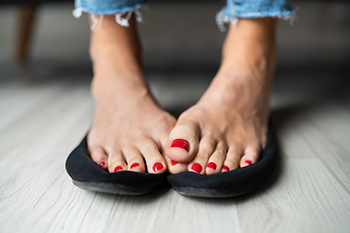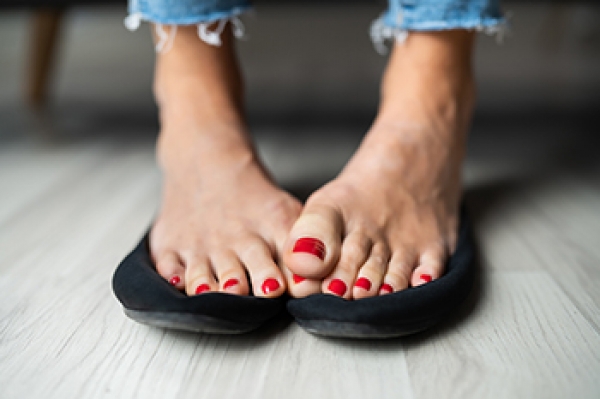
Hyperhidrosis is characterized by excessive sweating at any time. The two main types are primary focal hyperhidrosis and secondary generalized hyperhidrosis. Distinguishing them is vital for proper care. Primary focal hyperhidrosis often starts in childhood and is possibly linked to genetics. It results in localized sweating in areas like the feet. Regardless of activity or temperature, excessive sweating occurs, impacting daily life and possibly causing skin issues. Secondary generalized hyperhidrosis is typically diagnosed later in life and may relate to other health conditions or medications. Sweating affects the entire body, including night sweats, unrelated to exercise or anxiety. Complications of hyperhidrosis can include social and emotional challenges, such as embarrassment, social isolation, and anxiety. Psychological impacts affect confidence, work performance, and relationships. Skin related issues like maceration and fungal infections are common due to continuous moisture. If you or your child suffers from hyperhidrosis of the feet, it is suggested that you schedule an appointment with a podiatrist for a diagnosis so that appropriate treatment can be administered, and possible complications can be avoided.
If you are suffering from hyperhidrosis contact Dr. Joshua David Scoll of Pennsylvania. Our doctor can provide the care you need to attend to all of your foot and ankle needs.
Hyperhidrosis of the Feet
Hyperhidrosis is a rare disorder that can cause people to have excessive sweating of their feet. This can usually occur all on its own without rigorous activity involved. People who suffer from hyperhidrosis may also experience sweaty palms.
Although it is said that sweating is a healthy process meant to cool down the body temperature and to maintain a proper internal temperature, hyperhidrosis may prove to be a huge hindrance on a person’s everyday life.
Plantar hyperhidrosis is considered to be the main form of hyperhidrosis. Secondary hyperhidrosis can refer to sweating that occurs in areas other than the feet or hands and armpits. Often this may be a sign of it being related to another medical condition such as menopause, hyperthyroidism and even Parkinson’s disease.
In order to alleviate this condition, it is important to see your doctor so that they may prescribe the necessary medications so that you can begin to live a normal life again. If this is left untreated, it is said that it will persist throughout an individual’s life.
A last resort approach would be surgery, but it is best to speak with your doctor to find out what may be the best treatment for you.
If you have any questions please feel free to contact one of our offices located in Philadelphia, Bensalem, and Fairless Hills, PA . We offer the newest diagnostic and treatment technologies for all your foot and ankle needs.

